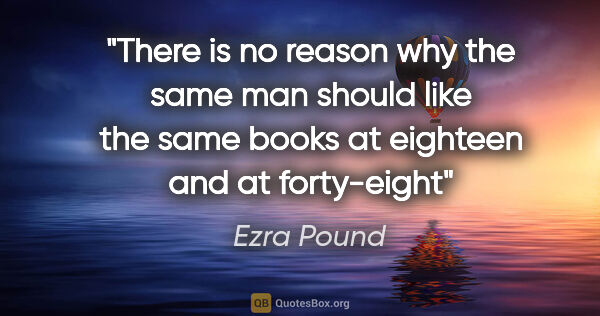Likes Quotes (page 624)
I remember saying once to my friend Susan, when my marriage was becoming intolerable, "I don't want my children growing up in a household like this." Susan said, "Why don't you leave those so-called children out of the discussion? They don't even exist yet. Why can't you just admit that you don't want to live in unhappiness anymore?
Elizabeth Gilbert
What I didn’t yet understand was the importance of taste and timing. Books are like people. Some look deceptively attractive from a distance, some deceptively unappealing; some are easy company, some demand hard work that isn’t guaranteed to pay off. Some become friends and say friends for life. Some change in our absence — or perhaps it is we who change in theirs — and we meet up again only to find that we don’t get along any more.
Mark Haddon
In a library we are surrounded by many hundreds of dear friends, but they are imprisoned by an enchanter in these paper and leathern boxes; and though they know us, and have been waiting two, ten, or twenty centuries for us,—some of them,—and are eager to give us a sign and unbosom themselves, it is the law of their limbo that they must not speak until spoken to; and as the enchanter has dressed them, like battalions of infantry, in coat and jacket of one cut, by the thousand and ten...
Ralph Waldo Emerson

It was too perfect to last,' so I am tempted to say of our marriage. But it can be meant in two ways. It may be grimly pessimistic - as if God no sooner saw two of His creatures happy than He stopped it ('None of that here!'). As if He were like the Hostess at the sherry-party who separates two guests the moment they show signs of having got into a real conversation. But it could also mean 'This had reached its proper perfection. This had become what it had in it to be. Therefore of course it...
C. S. Lewis
Sometimes with the most intense pain a paralysis of sensibility occurs. The soul disintegrates--hence the deadly frost--the free power of the mind--the shattering, ceaseless wit of this kind of despair. There is no inclination for anything any more--the person is alone, like a baleful power--as he has no connection with the rest of the world he consumes himself gradually--and in accordance with his own principle he is--misanthropic and misotheos.
Novalis
The emotion of art is impersonal. And the poet cannot reach this impersonality without surrendering himself wholly to the work to be done. And he is not likely to know what is to be done unless he lives in what is not merely the present, but the present moment of the past, unless he is conscious, not of what is dead, but of what is already living.
T. S. Eliot

